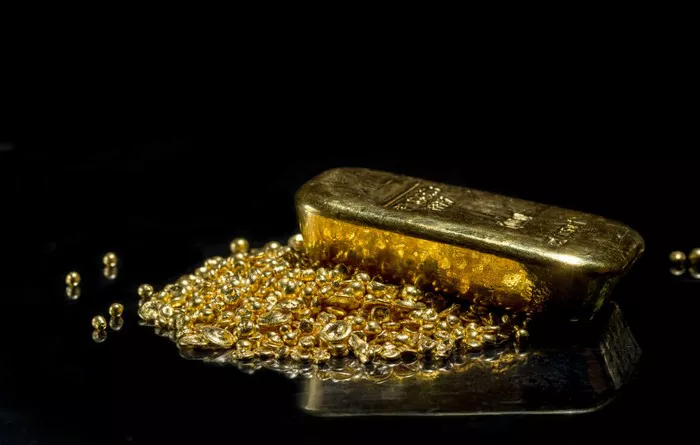In the realm of precious metals, gold stands as a timeless symbol of wealth and stability. However, beyond its ornamental and investment value, gold also holds worth in its scrap form. Whether it’s old jewelry, dental fillings, or electronic components, these items can be melted down and recycled for their gold content. Understanding how much you can get for scrap gold requires delving into various factors that influence its value. This guide aims to provide you with comprehensive insights to maximize your returns when dealing with scrap gold.
Understanding the Basics
Before diving into the intricacies of determining the value of scrap gold, it’s essential to grasp the fundamental concepts.
1. Karat System
Gold purity is measured in karats, denoted as “k” or “kt.” The karat system ranges from 1 to 24, with 24 karats being pure gold. For instance, 18-karat gold contains 75% gold and 25% other metals.
2. Weight Measurement
Gold is typically weighed in troy ounces (31.1 grams) or grams. Precise measurements are crucial in assessing its value accurately.
3. Current Market Price
The price of gold fluctuates daily based on global supply and demand dynamics. Keeping track of current market prices is essential for determining the worth of your scrap gold.
Factors Influencing Scrap Gold Value
Several factors influence the value of scrap gold, impacting the amount you can receive.
1. Purity
The purity of gold significantly affects its value. Higher karat gold commands a premium price compared to lower karat gold due to its increased gold content.
2. Weight
The weight of your scrap gold directly correlates with its value. Larger quantities of gold will naturally yield higher returns.
3. Market Conditions
Fluctuations in the global economy and geopolitical events can influence the demand for gold, thereby affecting its market price.
4. Buyer’s Assessment
Different buyers may offer varying prices for scrap gold based on their assessment criteria and processing capabilities.
Determining the Value
Calculating the value of your scrap gold involves a straightforward process but requires attention to detail.
1. Determine Purity
Separate your gold items based on their karat purity. Most jewelry is stamped with a karat mark indicating its purity level.
2. Weigh Your Gold
Accurately weigh each pile of gold using a precise scale. Ensure your scale measures in grams or troy ounces for accurate calculations.
3. Calculate Value
Multiply the weight of each pile by the current market price of gold per gram or ounce. Then, adjust the value based on the purity of each pile using the following formula:
Value = Weight (in grams or ounces) × Purity (as a decimal) × Current Market Price
4. Consider Additional Costs
Keep in mind any fees or deductions that buyers may impose, such as refining fees or assay charges.
Maximizing Returns
To maximize your returns when selling scrap gold, consider the following strategies:
1. Research Multiple Buyers
Explore various gold buyers, including local jewelers, pawnshops, and online platforms. Compare their prices, reputation, and customer reviews to ensure you get the best deal.
2. Negotiate Wisely
Don’t hesitate to negotiate with buyers to secure a fair price for your scrap gold. Be prepared to walk away if you feel the offered price is too low.
3. Sell in Bulk
Selling larger quantities of scrap gold can often result in higher per-gram prices. Consolidate your gold items to leverage bulk selling advantages.
Conclusion
Determining the value of scrap gold requires attention to detail, market knowledge, and a keen understanding of various factors influencing its worth. By following the guidance provided in this comprehensive guide, you can maximize your returns when dealing with scrap gold. Remember to stay informed about market conditions, research potential buyers diligently, and negotiate wisely to ensure you receive a fair price for your valuable assets.
FAQs
Q1: How do I know if my gold is real?
A1: Authenticating gold can be done through various methods, including acid tests, magnet tests, and professional appraisal. Consult with a reputable jeweler or utilize testing kits to verify the authenticity of your gold.
Q2: Can I sell damaged or broken gold jewelry as scrap?
A2: Yes, damaged or broken gold jewelry can still be sold as scrap. The value will be based on its gold content rather than its aesthetic appeal. Be sure to separate it from any non-gold components before selling.
Q3: What should I do if I’m unsure about the purity of my gold?
A3: If you’re unsure about the purity of your gold, consider having it professionally assessed or tested. Reputable jewelers or assay offices can provide accurate assessments of your gold’s purity, ensuring you receive fair compensation when selling.


